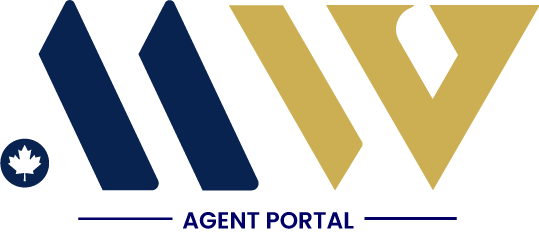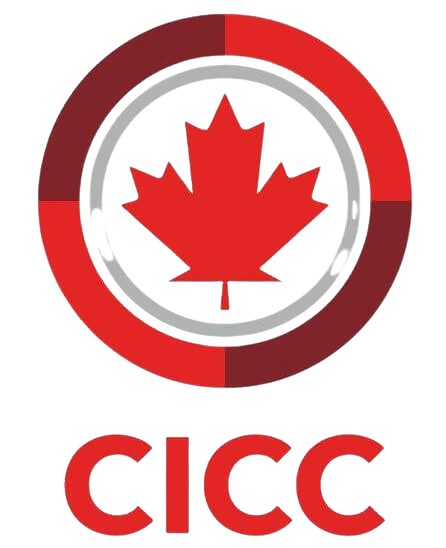If you immigrate to Canada, you can be categorized as a temporary or permanent resident.
If you are a permanent resident of Canada, you may have Permanent Residency (PR), but this does not mean you are a Canadian citizen. At this point, you are most likely still a citizen of another country.
If you are studying or working in Canada temporarily, as either an international student or a foreign worker, you are not a permanent resident. This also applies if you are a tourist visiting Canada.
Let’s take a closer look at what the requirements are to get Canada permanent residency (PR), as well as what you can and can’t do as a Canadian permanent resident.
Requirements for Getting Canadian Permanent Residence Status
If you want to immigrate to Canada and get permanent residency you will need to not only meet the requirements of your chosen immigration programs but also be considered eligible to enter or be admissible to Canada. This usually requires having a clear criminal record, being in good health, having enough funds to support yourself and your family, and being able to settle in Canada with ease.
How do I keep my Canada PR status?
To remain a Canadian permanent resident, you will need to meet a residency obligation, which means that you need to physically be in Canada for a specified amount of time. The current residency obligation is for a permanent resident to be in Canada for at least 730 days within a five-year period unless you meet any of the following exceptions:
- your spouse or common-law partner is a Canadian citizen and you are accompanying them while outside of Canada;
- if you are a child accompanying your parents outside of Canada;
- you’re outside of Canada for work purposes and are employed full-time by a Canadian business;
- your spouse or common-law partner is a Canadian citizen and you are accompanying them for work while outside of Canada for business (full-time employment) or in public service of Canada or a Canadian province.
What You Are Allowed to Do as a Canadian Permanent Resident?
| As a Canadian Permanent Resident, You Can: |
|---|
| Receive social benefits (for example access to Medicare, Canada’s government healthcare program) |
| Live, study, or work in Canada (so long as you meet the requirements of the province or territory you choose to live in) |
| Apply for Canadian Citizenship |
| Receive protection as a permanent resident (the Canadian government must protect you under their law system and the Canadian Charter of Rights and Freedoms) |
But there are also things you are not entitled to do as a permanent resident of Canada. For example, you are not allowed to vote, run for political office, or have a job with a high-level security clearance.
A Canadian Permanent Resident Card
If you wish to travel abroad, you must take your Permanent Resident Card with you. You can use it to provide proof that you are a Canadian permanent resident and it can be used to re-enter Canada’s borders.
If you have lost your Permanent Resident Card, you will need a document called a Permanent Resident Travel Document to return back to Canada. This document can only be used once to enter Canada.
Losing Your Permanent Residency in Canada
You cannot automatically lose your PR status in Canada nor does it expire. Your PR card can however expire and will need to be renewed. In order for your permanent residence status to be lost, you will need to go through an official process.
| You Can Lose Your Permanent Residency in Canada if You: |
|---|
| Applied with false documentation for either permanent residency, Canadian citizenship, or any other application |
| Gave falsified information from your sponsor |
| Gave falsified information for a refugee claim |
| Committed a serious crime, either before or after becoming a Canadian permanent resident (unless you receive a pardon for your crime, or meet other requirements) |
| Lived more than three years in a five year period outside of Canada |
| Are believed to be a danger to the Canadian government due to: |
| a. Spying b. Treason c. Terrorism or d. Your classification as a security risk |
| Belonged to a terrorist or criminal organization or |
| Committed war crimes, crimes against humanity, or human rights violations |
If you want to renounce your PR status voluntarily, you will need to submit an application to IRCC.
How long do you need to spend in Canada to keep your permanent resident status?
If you are a permanent resident, you must spend at least two cumulative years in a five-year period in Canada. If you spend more than three years in another country that is not Canada, you can lose your permanent resident status.
How long does it take to become a permanent resident in Canada?
This, firstly depends on the immigration program you’ve chosen, for example, processing times for Express Entry ranges from 6 to 8 months whereas other programs such as Family sponsorship can take up to a year. It also depends on whether Immigration, Refugees, and Citizenship Canada (IRCC) have all the necessary documents required to complete the application process. On average, it takes about 45 days to process PR cards for new applicants once IRCC has received everything that they need to process the application. Renewed cards can take roundabout 104 days to process.
Can you stay in Canada while waiting for permanent residency?
Yes, you can as long as your status remains legal. Those with temporary residence status are permitted to stay in Canada fr a specified time only. This needs to remain valid while you are waiting for your Canada PR status to be approved.
Do I need a visa if I have Canadian PR?
No. You can enter Canada without an Electronic Travel Authorization (eTA) or visitor’s visa. It is, however, recommended that you always carry your PR card with you when traveling.
Can I get PR in Canada after 1 year?
Yes. There are various ways to do this but perhaps the best way, if you don’t qualify for an immigration program, is to get a Canada work visa or study a 1-year course in Canada and apply for a Post-graduate Work Permit (PGWPP). Once you have at least one year of Canadian work experience you will be eligible to apply for permanent residency through the Canadian Experience Class (CEC).
Can I get PR in Canada after studying in Canada and completing a 2-year program?
No, but studying in Canada can open up the doors to permanent residency. All students who have completed at least an eight-month study program at a Designated Learning Institution (DLI) may be eligible to apply to stay and work in Canada through programs like the Post Graduate Work Permit Programs (PGWPP). This will allow you to get the necessary Canadian work experience to apply for permanent residence in Canada through programs like the Canadian Experience Class (CEC).
Can I go to the USA with Canadian PR?
All Canadian permanent residents will need a nonimmigrant visa to enter the U.S. unless they are from a participating country in the Visa Waiver Program (VWP) as well as meet the VWP requirements and want to visit for 90 days or less under the program.
Can I work in the USA with Canadian PR?
No. You can’t work in the USA with a Canada PR card. If you want to work in the U.S. as a Canadian permanent resident you will need a U.S. visa. You could, however, work in Canada once you become a Canadian citizen under the North American Free Trade Agreement (NAFTA). You will need to have lived in Canada for at least 3 years to become a citizen.
Which countries can I travel to with a Canadian PR Card?
The great part about being a Canadian permanent resident is not only the benefits you receive while in Canada but also those when you leave. If you enjoy traveling you will be able to travel to the following countries, visa-free, just by being a Canada PR holder:
- All Dutch Caribbean territories (90 days)
- Anguilla (maximum 3 months)
- Bahamas (90 days)
- Bermuda (maximum 6 months)
- British Virgin Island (up to 6 months)
- Cayman Islands (60 days)
- Costa Rica (30 days, PR card must be valid for more than six months)
- Cuba (30 days, PR card, and a current and valid passport required)
- Dominican Republic (60 days)
- El Salvador (not applicable to all nationalities)
- Georgia (90 days in 180 days)
- Guatemala (not applicable to all nationalities)
- Honduras (not applicable to all nationalities)
- Jamaica (up to 6 months)
- Mexico (6 months)
- Nicaragua (90 days within 180 days, not applicable to all nationalities)
- Panama (30 days or 180 days)
- Philippines (30 days)
- Qatar (30 days)
- South Korea (30 days when in transit, not applicable to all nationalities)
- Taiwan (30 days, online registration required, only applicable to certain nationalities)
- Turks and Caicos Islands (90 days)
Navigating the Canadian immigration system can be a bit tedious, with a copious amount of forms and documents to complete and strict submission dates to adhere to. But that’s what we’re here for. At mwagents.ca, we take the stress and hassle out of planning to relocate abroad. Our accredited RCICs (Regulated Canadian Immigration Consultants) are ready to evaluate your eligibility, review all documentation, and submit all documentation on your behalf. Using an RCIC not only gives you the best possible chance of receiving an Invitation to Apply (ITA) for permanent residency in Canada but will also make the entire process simple and stress-free. We handle the paperwork while you prepare to live your Canadian dream and eventually become a Canadian permanent resident. It’s just that simple.





